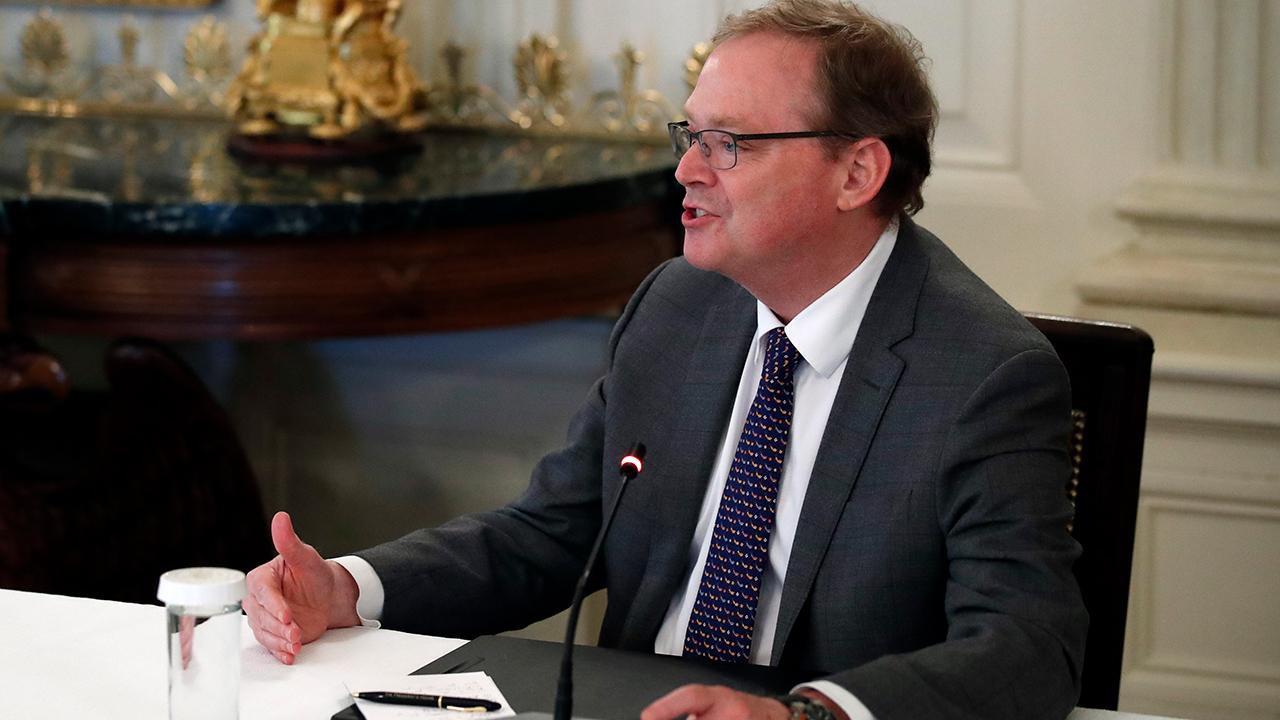Unemployment surged to 14.7% in April, the highest since Great Depression
Economists surveyed by Refinitiv expected the report to show that unemployment rose to 16 percent in April
Get all the latest news on coronavirus and more delivered daily to your inbox. Sign up here.
U.S. employers cut 20.5 million jobs in April, a record-shattering number that pushed unemployment to 14.7 percent, the highest level since the Great Depression, as the coronavirus pandemic triggered an unprecedented economic catastrophe.
The grim Labor Department report provides one of the most comprehensive looks at the economic damage inflicted by the virus outbreak and subsequent stay-at-home measures mandated by states to curb the spread of COVID-19.
More than a decade of job gains were erased in a single month; the stunning job losses are more than double what the U.S. saw during the 2008 financial crisis.
Economists surveyed by Refinitiv expected the report to show that unemployment rose to 16 percent in April and that employers shed 21.8 million jobs, essentially erasing all job gains in the past decade.
CORONAVIRUS LAYOFFS HURTING LOW-INCOME WORKERS THE MOST, STUDY FINDS
The paralyzed U.S. economy, and the tidal wave of layoffs, pushed the unemployment rate — which sat at a half-century low of 3.5 percent in February — to the highest level since record-keeping began in 1948. The previous record was 10.8 percent in late 1982. The number of job losses is also the biggest on record dating back to 1939. Previously, the largest one-month job loss number was 1.96 million in September 1945, at the end of World War II.
A more inclusive measure of what's called underemployment, which counts those not looking for work and individuals who are reduced to part-time hours for economic reasons, hit an all-time high of 22.8 percent.
As expected, the leisure and hospitality sector bore the biggest brunt of job losses, shedding more than 7.6 million jobs in April alone, 5.5 million that stemmed from eating and drinking establishments.
FED'S KAPLAN WARNS OF 'HISTORIC' CONTRACTION, SEES NEED FOR MORE STIMULUS
But few sectors were immune to the pandemic: Education and health services lost 2.5 million, while professional and business services, as well as retail, each lost about 2.1 million.
Analysts have warned it may take some time for the U.S. economy to return to pre-crisis levels.
"The unemployment numbers are clearly going to be shocking," said Jason Reed, an economist and the assistant chair and finance professor at the University of Notre Dame's Mendoza College of Business.
"But it really will come as a surprise to no one who has been following this story. It’s more like, how do we get back on the road to recovery instead of keep watching these signposts saying we’re in trouble," he added. "We haven’t really, I think, moved yet to get back on that road."
In the seven weeks since the nation's economy came to a near standstill, more than 33 million Americans have filed for first-time unemployment benefits, meaning the jobless rate will likely continue to climb in May.
VIRUS OUTBREAK COULD FORCE HALF OF SMALL BUSINESSES TO CLOSE WITHIN 6 MONTHS
The virus snapped a historically long, 11-year expansion in the U.S. as restaurants, bars, hotels, movie theaters and entertainment venues were forced to close to protect public health. Before the virus began to hit the nation, February saw a solid payroll gain of 230,000. But in March, when the lockdown began, the economy shed 870,000 jobs (adjusted from the initially reported loss of 701,000).
Some states have started to ease stay-at-home edicts in recent weeks, which some economists believe could provide relief to the decimated workforce.
"It remains to be seen what the new normal will look like," said Tony Bedikian, managing director at Citizens Bank. "Some industries and companies may be changed forever, but the economy as a whole was on solid footing at the start of the year and should be well-poised for a recovery once the COVID-19 pandemic abates.”
Congress has passed four massive economic-relief packages totaling nearly $3 trillion, a record amount, to blunt the virus outbreak's toll on American workers and businesses.




















